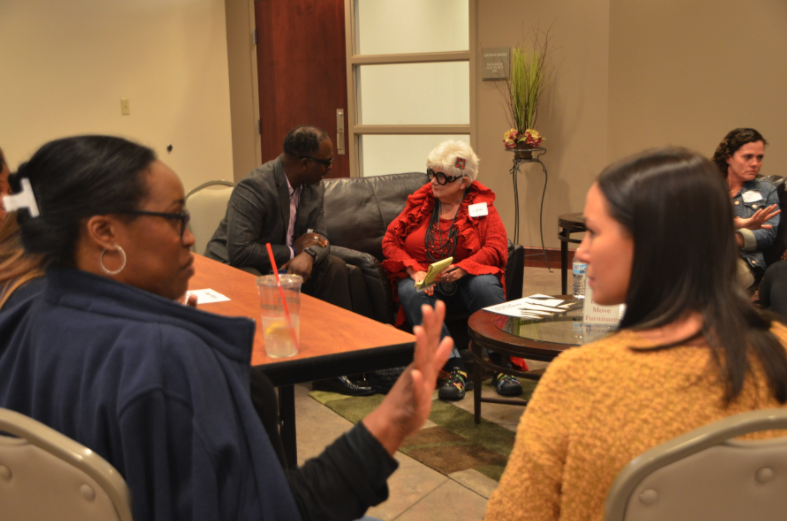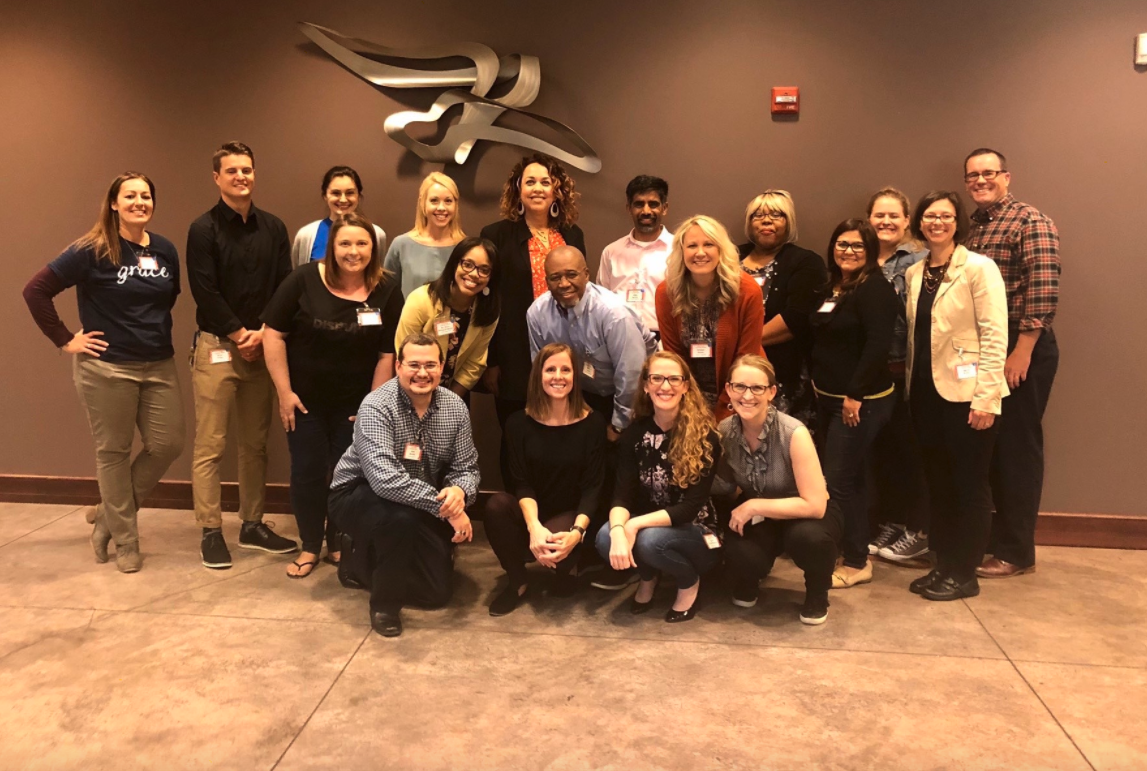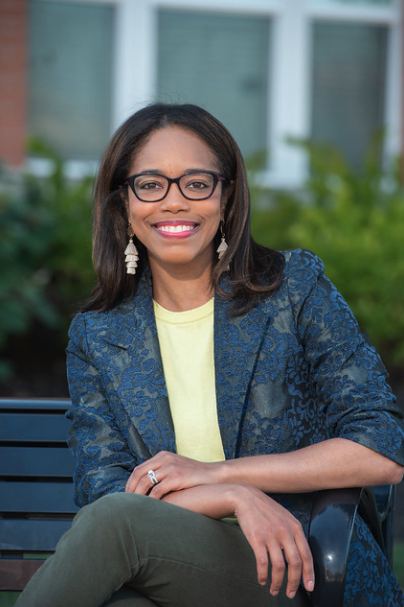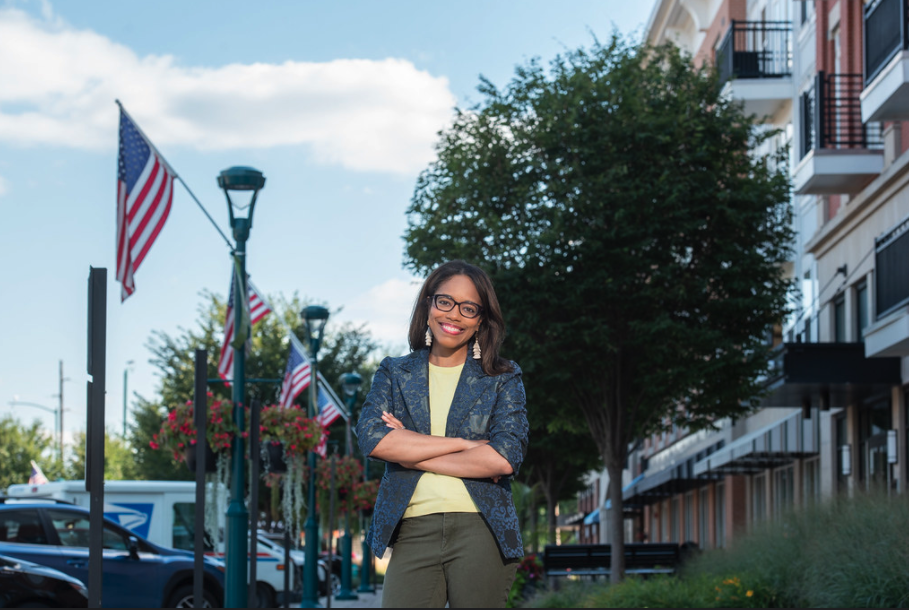Fishers Racial Equity Community Network Working to Create Change
Photography Provided by RECN & Amy Payne
 Black lives matter, but the conversation goes far deeper than a hashtag or signage visible in a protest. It’s something Dr. Erica Buchanan-Rivera knows well, not just because she has a passion for mobilizing the community around racial equity, but also because of the racism she experiences as a woman of color.
Black lives matter, but the conversation goes far deeper than a hashtag or signage visible in a protest. It’s something Dr. Erica Buchanan-Rivera knows well, not just because she has a passion for mobilizing the community around racial equity, but also because of the racism she experiences as a woman of color.
“I talk about racial equity at work all day long, but when I clock out, I’m still dealing with racism as a Black woman in my personal life,” says Buchanan-Rivera, chief equity inclusion officer for Hamilton Southeastern Schools.
That’s why last year she helped start the Racial Equity Community Network (RECN), a multiracial group in Fishers whose mission is to unite activists and organizations to impact the community, by eliminating cultural and racial misunderstandings that prohibit people from being their authentic selves.
“We need to have more conversations about race,” says Buchanan-Rivera, noting that making true change goes beyond showing solidarity by changing a social media profile picture to a black square or painting a street with the words Black Lives Matter. “We also need more people coming together to talk about what that action looks like. How do we actually protect the lives of people of color via policy work? How do we dismantle racial disparities in health care? It’s important to lean into the discomfort of racial dialogues, and understand that for Black, indigenous and people of color, many do not have the ability to escape that discomfort in their every day lives.”
The RECN Leadership Board wanted to provide safe spaces for marginalized children and teens where they would feel comfortable being their authentic selves. Indigenous Heroes Canada provides educational resources on their website.
“It’s hard to exist within environments when you believe that your identity is not valued and your culture is not welcome,” Buchanan-Rivera says.
RECN is working with parks and recreation departments, the Early Learning Alliance Network, and Conner Prairie to create programming that allows students to engage in cultural connectivity, where they can learn from one another and begin to understand anti-bias education.
 “We also want students to understand how they can be a true ally as well as an upstander,” Buchanan-Rivera says. “We ask, ’How can youth be an advocate for each other and stand up against racism in their community?’ There are many teens who are working with RECN to form their own student-based organizations to elevate racial justice in Fishers. The student group, Fishers Equity Awareness held a Black Lives Matter demonstration in July at the Nickel Plate District Amphitheater.
“We also want students to understand how they can be a true ally as well as an upstander,” Buchanan-Rivera says. “We ask, ’How can youth be an advocate for each other and stand up against racism in their community?’ There are many teens who are working with RECN to form their own student-based organizations to elevate racial justice in Fishers. The student group, Fishers Equity Awareness held a Black Lives Matter demonstration in July at the Nickel Plate District Amphitheater.
Buchanan-Rivera designed racial dialogue circles (RDCs) to intentionally include multiple racial perspectives so that people will walk away with an understanding of different lived experiences.
“We talk about constructs of race, understanding historic, systemic race within our country and how it has unfolded,” Buchanan-Rivera says. “We talk about understanding white supremacy culture and how it operates systems – not just education but health care, our judicial system, nonprofits.”
She says much has been omitted in Black history that needs to be taught.
“We need to hear stories about those who have fought and advocated for social change, and not just Dr. Martin Luther King and Rosa Parks, but also Ella Baker, and Audre Lorde,” Buchanan-Rivera says. “We have to understand, too, that the omission of those historical narratives was by design. That’s the system of white supremacy culture that has to be disrupted, and it can only be disrupted if we are willing to lean into these hard conversations.”
The RDCs, which the organization plans to hold at Conner Prairie, are a component of the RECN. In addition to the RDCs, they plan to offer more programming to engage community members around racial equity work. This may incorporate guest speakers or panel discussions, or other events that are devoted to the creation of identity-safe spaces for children.
In October of 2019, the RECN held an event at the Delaware Township Community Center where they invited national speaker Kelly Wickham Hurst, the CEO of Being Black at School, a nonprofit for the advocacy of Black students. The event engaged nearly 100 community members in conversations about equity versus equality, creating identity-safe spaces for children and teens in the community, and what civic action looks like in response to racial inequalities. Before the coronavirus pandemic, the group met monthly to follow up on topics they had discussed, and to assemble a plan to assist the city in becoming more racially inclusive.
 “We engaged in some powerful conversations,” says Buchanan-Rivera, noting that students of color shared a strong prevalence of racial profiling within the community. “They’ve had neighbors call the police on them for simply playing basketball in their own driveways. That type of implicit bias is something that we’ve talked about as a team that we need to address, but we can’t do it alone; so it’s important to have this coalition where we are engaging multiple people in positions of power who can elicit change throughout our community.”
“We engaged in some powerful conversations,” says Buchanan-Rivera, noting that students of color shared a strong prevalence of racial profiling within the community. “They’ve had neighbors call the police on them for simply playing basketball in their own driveways. That type of implicit bias is something that we’ve talked about as a team that we need to address, but we can’t do it alone; so it’s important to have this coalition where we are engaging multiple people in positions of power who can elicit change throughout our community.”
As for hosting diversity celebrations, Buchanan-Rivera believes they are an entry point to racial awareness. However, they do not equate to racial justice.
“Celebrations manage inequities – they don’t remove the barriers that harm people of color,” she says. “RECN is in the business of trying to eradicate inequities. To hold an event one day and have people walk away still racist the next day is not really getting to the heart of change.”
In an effort to ensure racial equity remains top-of-mind in the community, the RECN leadership team has also met with Mayor Scott Fadness and Police Chief Ed Gebhart. The group wants to make sure the racial equity work is a movement throughout Fishers and not simply a moment.
Engaging in the Conversation
RECN Participants Share Their Thoughts
“It was a great forum to bring people together to take a deep dive, have difficult conversations and learn about each other. The experience was life-changing for me.” – Karen Bush
“There’s something so powerful about sharing a table with a group of people and hearing their stories, perspectives and lived truths. The world could use a lot more opportunities like this where you’re encouraged to slow down, learn and really listen to others, and embrace our shared humanity.” – Lisa Finn
“The RDC not only helped me understand how to better relate to my community, it helped me understand in a historical context why race relations are where they are today.” – Alex Morales
“It allowed a diverse group of people to come together to learn and grow through their shared stories, and how race impacted those experiences. We were then able to recognize our own and other people’s humanity and determine the changes we could make in our community to create an equitable and inclusive place for BIPOC [Black, indigenous and people of color] people.” – Renee Isom
To learn more about how to join the conversation, check out RECN Fishers on Facebook, Twitter and Instagram, or email RECNFishers@gmail.com.







Comments 1